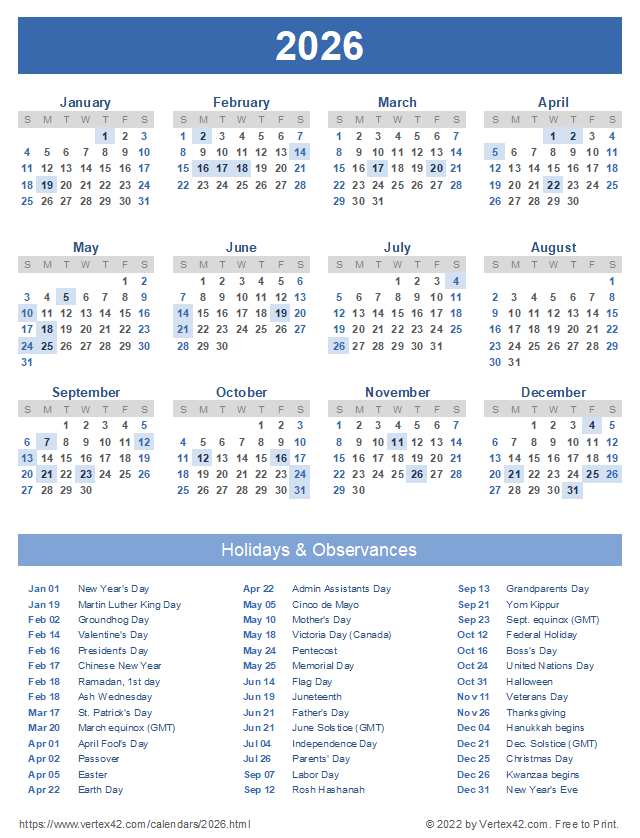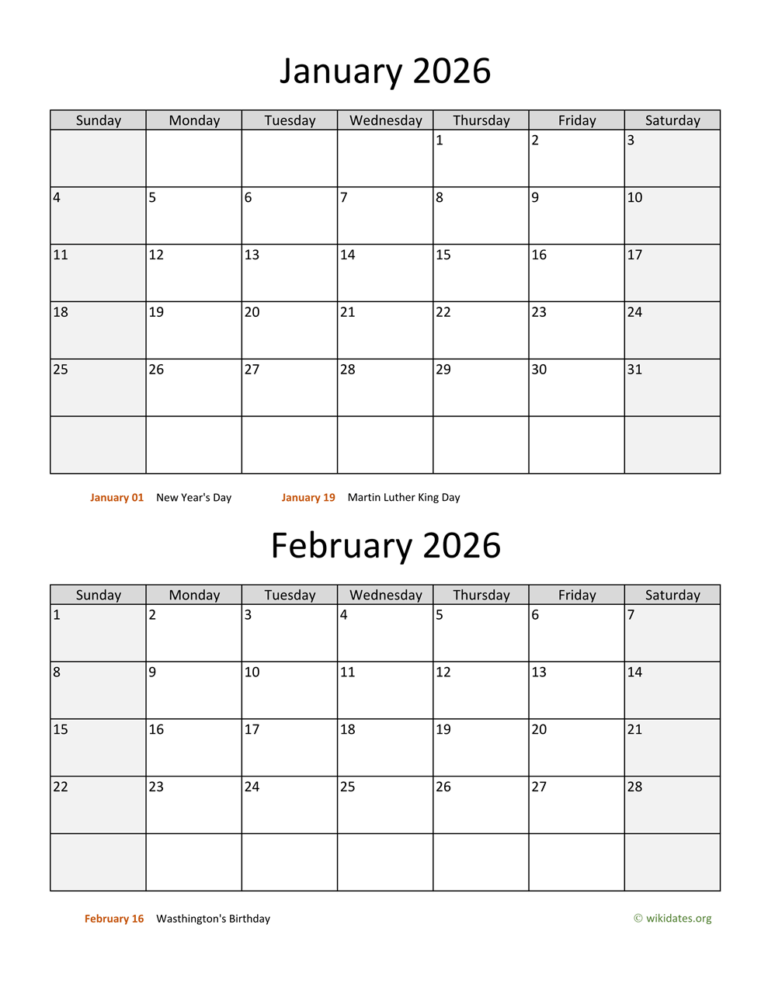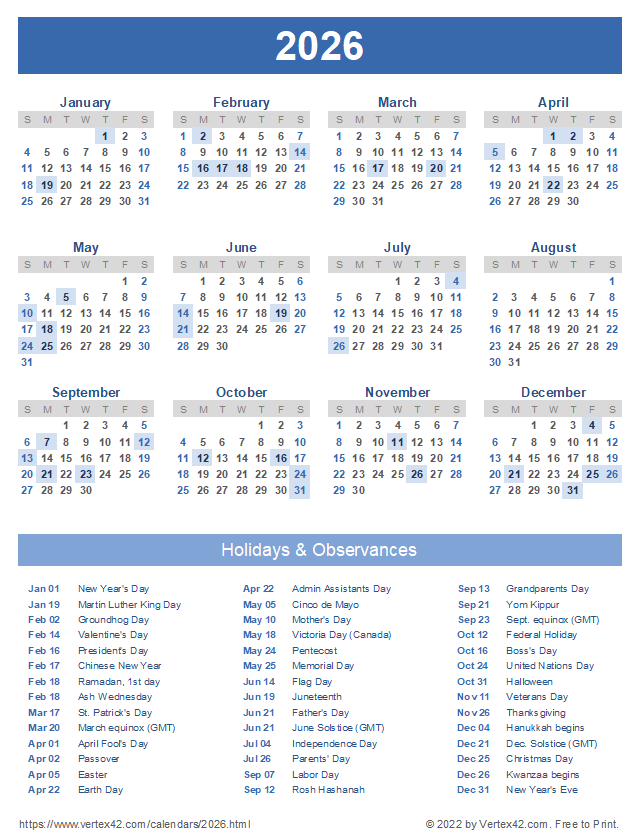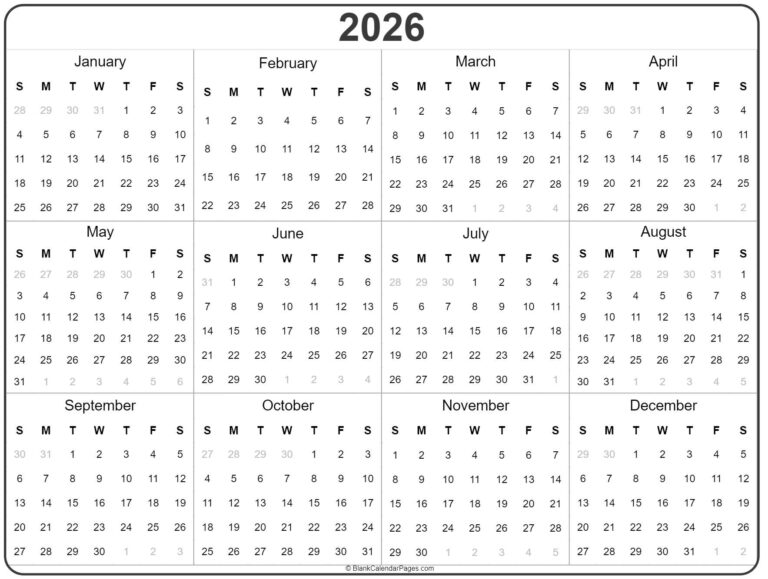Academic Calendar 2026: A Comprehensive Guide for Students, Faculty, and Staff
Welcome to the Academic Calendar 2026, your comprehensive guide to the upcoming academic year. This calendar provides a structured and organized framework for all academic activities, ensuring a smooth and successful year for everyone involved.
The calendar is designed to cater to the needs of students, faculty, and staff, providing key dates, deadlines, and important information to help you plan your schedules effectively. Whether you’re a new or returning student, a dedicated faculty member, or a hardworking staff member, this calendar will serve as your indispensable companion throughout the academic year.
Academic Calendar Overview

The Academic Calendar for 2026 provides a comprehensive overview of important dates, deadlines, and events for students, faculty, and staff. It’s designed to help everyone stay organized and informed throughout the academic year.
The calendar is structured into semesters, with specific dates for the start and end of each term, as well as key milestones like registration, exams, and holidays. It also includes important deadlines for financial aid, housing, and other administrative tasks. By providing a clear and concise overview of the academic year, the calendar helps ensure that everyone is aware of important dates and can plan accordingly.
Key Dates and Deadlines
Here are some key dates and deadlines to keep in mind for the 2026 academic calendar:
- Spring Semester 2026: Begins on January 19th, 2026, and ends on May 13th, 2026.
- Summer Semester 2026: Begins on May 16th, 2026, and ends on August 12th, 2026.
- Fall Semester 2026: Begins on August 15th, 2026, and ends on December 16th, 2026.
Important Dates and Deadlines

The academic calendar is packed with important dates and deadlines. It’s crucial to be aware of these key milestones to plan your studies effectively.
- Registration: This is when you officially enroll in your courses for the upcoming semester. Make sure to register on time to avoid missing out on your preferred classes.
- Exams: Exams are the culmination of your hard work throughout the semester. They’re typically held at the end of each term, so it’s important to start studying early.
- Holidays and Breaks: The academic calendar includes several holidays and breaks throughout the year. These are great times to take a break from your studies and recharge your batteries.
Course Schedule and Registration
Get ready to plan your academic journey! The course schedule for 2026 is now available, listing all the modules you can choose from. Whether you’re a fresher or a returning student, you’ll find everything you need to know about course offerings, availability, and prerequisites.
Once you’ve picked your courses, it’s time to register. We’ll guide you through the registration process, including timelines and enrollment policies. So, grab a cuppa and let’s get started!
Course Offerings
The course schedule is packed with a wide range of modules, from classics to cutting-edge subjects. You’ll find courses in:
- Arts and Humanities
- Business and Management
- Computing and Technology
- Education
- Engineering
- Health and Social Care
- Law
- Science
- Social Sciences
Prerequisites
Some courses require you to have taken certain other courses before you can enroll. These are called prerequisites. You can find the prerequisites for each course in the course schedule.
Registration Process
Registration opens on [date] and closes on [date]. To register for courses, you’ll need to:
- Log in to the student portal.
- Click on the “Registration” tab.
- Select the courses you want to take.
- Click the “Register” button.
Once you’ve registered for your courses, you’ll receive a confirmation email. You can also view your registered courses in the student portal.
Enrollment Policies
There are some enrollment policies that you need to be aware of. These policies include:
- Course caps: Some courses have a limited number of places available.
- Priority registration: Some students have priority registration, which means they can register for courses before other students.
- Late registration: You may be able to register for courses after the registration deadline, but you may have to pay a late fee.
Exam Schedules and Grading
Yo, listen up fam! Exam schedules and grading are a big deal, so we’re here to give you the lowdown. Let’s get the tea on when your exams are going down and how you’ll be marked.
First off, check out the exam schedules. They’ll tell you when and where your exams are for each course and semester. Make sure you mark them in your calendar and don’t be late! Time flies when you’re revising.
Grading Policies and Procedures
Now, let’s talk about grading. Your grades are gonna be based on a bunch of factors, like assignments, tests, and of course, exams. Each course will have its own grading policy, so make sure you read it carefully. It’ll tell you how much each assessment is worth and what you need to do to get a good grade.
Grading Scales
In most courses, you’ll be graded on a scale from 0 to 100. But don’t freak out if you don’t get 100% on everything. Most uni courses are graded on a curve, which means your grade will be based on how you do compared to the rest of the class.
Assessment Methods
There are different ways you can be assessed, like essays, presentations, or practical exams. Each assessment method has its own strengths and weaknesses, so make sure you know what you’re being assessed on and how to prepare for it.
Grade Appeals
If you think you’ve been graded unfairly, you can appeal your grade. But don’t be a salty loser about it. Make sure you have a valid reason for appealing and be prepared to provide evidence to support your claim.
Holidays and Breaks
The institution observes official holidays and breaks to provide students and staff with rest and time to recharge. These breaks allow for academic activities to be paused and resumed after the break period.
Bank Holidays
Bank holidays are statutory holidays observed in the United Kingdom. The institution observes the following bank holidays:
– New Year’s Day (1 January)
– Good Friday (variable)
– Easter Monday (variable)
– Early May bank holiday (first Monday in May)
– Spring bank holiday (last Monday in May)
– Summer bank holiday (last Monday in August)
– Christmas Day (25 December)
– Boxing Day (26 December)
Term Breaks
The institution has three term breaks during the academic year:
– Christmas break: This break occurs between the end of the autumn term and the start of the spring term. It typically lasts for two weeks and allows students to celebrate the Christmas and New Year holidays.
– February break: This break occurs in the middle of the spring term. It typically lasts for one week and provides students with a mid-term break.
– Easter break: This break occurs between the end of the spring term and the start of the summer term. It typically lasts for two weeks and allows students to celebrate the Easter holiday.
Academic Activities
During the breaks, academic activities are typically paused. Students are expected to use this time to rest and recharge. However, some students may choose to use this time to catch up on coursework or prepare for upcoming exams.
After the breaks, academic activities resume as normal. Students are expected to be prepared for classes and to continue working on their coursework.
Special Events and Activities
Get ready for an action-packed academic year! We’ve got a ton of exciting events and activities lined up to enhance your uni experience.
Conferences and Workshops
Mark your calendars for these industry-leading conferences and workshops designed to expand your knowledge and skills:
- National Tech Conference: Immerse yourself in the latest technological advancements and connect with experts in the field.
- International Business Symposium: Explore global business trends and strategies with thought leaders from around the world.
- Data Science Workshop: Learn cutting-edge data analysis techniques and gain hands-on experience with real-world datasets.
Guest Lectures
Prepare to be inspired by renowned scholars, industry professionals, and thought leaders who will share their insights and experiences:
- Nobel Laureate Lecture: Listen to a Nobel Prize winner discuss their groundbreaking research and its implications.
- CEO Talk: Get firsthand advice from a successful CEO on leadership, innovation, and career development.
- Artist-in-Residence Program: Interact with a renowned artist and learn about their creative process.
Other Enrichment Opportunities
Don’t miss these additional events that will broaden your perspectives and enrich your student life:
- Study Abroad Fair: Explore your options for studying abroad and connect with representatives from universities worldwide.
- Career Expo: Meet with potential employers, learn about job opportunities, and enhance your employability skills.
- Student Leadership Summit: Develop your leadership abilities and connect with other student leaders on campus.
Answers to Common Questions
What is the purpose of the Academic Calendar 2026?
The Academic Calendar 2026 is a comprehensive guide that provides a structured and organized framework for all academic activities throughout the year. It includes key dates, deadlines, course schedules, exam schedules, holidays, and special events to help students, faculty, and staff plan their schedules effectively.
How can I access the Academic Calendar 2026?
The Academic Calendar 2026 is available online on the university website. You can also download a printable version for your convenience.
What are some of the key dates and deadlines included in the Academic Calendar 2026?
The Academic Calendar 2026 includes key dates and deadlines for registration, exams, holidays, and breaks. It also provides information about course offerings, availability, and prerequisites.




